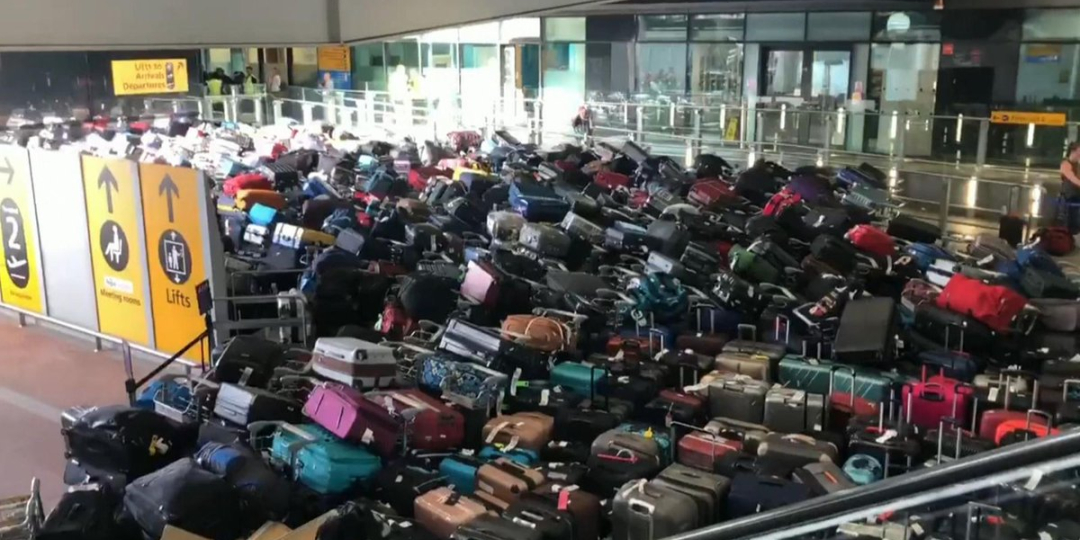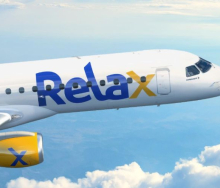On Monday, June 20, London’s Heathrow Airport began asking airlines to cut a number of their flights on a day-to-day basis, as a “carpet of baggage” had accumulated at the airport and this was causing delays to flights and long queues for passengers. On Wednesday, June 22 again, several flights were cancelled.
This latest obstacle in the path of seamless travel has been caused by problems with the baggage system at the airport. UK press report that it resulted in passengers having to wait up to three hours to retrieve their baggage over the past weekend. My London reports that passengers had had to queue to be taken into a baggage room in groups of five to identify their baggage and dig it out of a mound of baggage.
LHR asked airlines to cancel 10% of flights on Monday, as the baggage backlog became a problem. Virgin Atlantic, Flybe, Air France, Air Canada, TAP Air Portugal, Loganair, British Airways, Delta Air Lines, Brussels Airlines, Scandinavian Airlines, Aer Lingus, ITA Airlines, Eurowings, Lufthansa, KLM and Bulgaria Air all cancelled certain flights, according to news.sky.com. On Wednesday, June 22, baggage was still a problem, causing cancellations of LHR flights.
The Heathrow baggage system is a finite problem, but staff shortages and the inability of the airport services to re-staff quickly enough seem to be causing the most disruption at UK airports, and it is unpredictable when this could be righted. Through the week, flights from Gatwick have also been cancelled due to staff shortages.
Initially, post pandemic, with air travel taking off so sharply and gaining momentum so fast, it seemed logical that those who had been retrenched, laid off and dismissed would be eager to get their jobs back quickly.
Not so, according to the General Secretary of Unite union, Sharon Graham. She told the Sunday Mirror: "Airlines assumed, wrongly, that people who had either been made redundant or got out of the industry would come back on a pittance pay. That’s not going to happen. There is now a chronic shortage of staff and I can’t see how it’s going to change by July. If they don’t get their act together, this chaos could go on until next year.” Graham blamed “corporate greed” and “lack of foresight about what was going to happen when you lost 60 000 jobs”.
The disruptions at airports are now playing out against the backdrop of what is reported to be Britain's biggest rail strike in thirty years, as rail workers, led by union RMT, negotiate pay increases. The strikes, which continued yesterday (Thursday, June 23) and Saturday (June 25) are expected to cause disruption to major British summer events, including the Glastonbury music festival.
The British Ministry of Transport estimated that about 20% of rail services were operational.
And several other transport unions are balloting members over possible stoppages that could occur in the coming weeks.
However, My London reported that rail services at Heathrow Airport were running relatively smoothly yesterday, despite the strike. It also said that services on the Elizabeth Line kept travel into West London open. Trains were leaving at roughly half-hourly intervals yesterday.
The Piccadilly Line, which serves Heathrow’s terminals, was out of service due to the strike and, according to press accounts, is likely to remain that way today and Saturday too. The Heathrow Express to Paddington Station says on its website that it could be affected by the rail strike.















